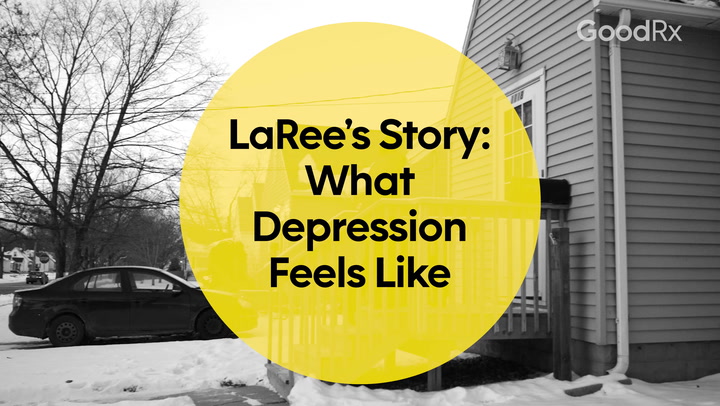
5 Health Benefits of Laughter
Key takeaways:
Laughter is beneficial for your physical, mental, and social well-being and can help reduce your stress levels.
Humans respond especially well to laughing with others; laughter helps communicate affection for the people we care about.
You can bring more humor into your life on a day-to-day basis. You can also join groups or take classes focused on humor and laughter.

We enjoy laughing because it feels good. So it is no surprise that humor has been a central part of the American advertising industry for almost 100 years. Advertisers use humor to attract us and hold our attention. We are more likely to pay attention when we feel entertained. But it’s not only advertisers who benefit from humor. You, too, can harness its benefits.
You may be aware that there are mental health benefits of laughter, but did you know that there are also physical and social benefits to it?
In this post, we will cover 5 ways that laughter can support your physical, mental, and social well-being. We will also share ways that you can bring more humor and laughter into your life.
5 ways that laughter promotes good health
Simply laughing can boost your physical and mental health. It also allows you to develop closer relationships with others. Let’s take a closer look at what can happen when you laugh.
1. Increased endorphins
Scientists have found that laughter may release endorphins. This hormone helps you feel good when your body releases it. Thanks to endorphins, laughing — especially with others — may boost your mood.
2. Decreased stress
You may have also noticed that you feel lighter and less stressed out when you laugh. One small study showed that laughter decreases stress hormones in your body. As a bonus, lower stress levels can also lower anxiety and potentially improve your sleep quality.
3. Improved heart health
Laughter may improve your heart health thanks to its ability to help your body relax. Laughter can help loosen up your muscles, improve blood circulation, and help you breathe easier.
4. Increased pain tolerance
Believe it or not, laughter may even increase your pain tolerance. In addition to giving your mood a lift, endorphins play a role in lowering pain. Because laughter releases more endorphins, pain may bother you a little less.
5. Bonding with others
Have you ever started laughing just because your friend is laughing? That’s because laughter is contagious. You’re 30 times more likely to laugh with others than alone.
Laughing helps us communicate affection and feel connected to others. When we laugh with other people, we strengthen our relationships with them. In fact, just remembering times you’ve laughed with loved ones can help bring you closer together.
What are ways you can bring more humor into your life?
There are various ways that you can bring levity and laughter into your life. Let’s take a look at a few suggestions:
1. Find laughter in everyday life
There are plenty of things you can do throughout the day to give yourself (and others) a chuckle. You might want to give some of these a try:
Do something unexpected at home — like a silly dance move — to get your family to laugh.
Share a funny video with a coworker on your lunch break.
Play a board or card game with friends or family, which can often bring out funny banter.
Search online for jokes that are your type of humor, such as dad jokes, knock-knock jokes, or one-liners, to share with others.
Wind down at the end of the day by watching a monologue of your favorite comedian.
2. Try laughter yoga
When you think of yoga, you might think of balancing your body in challenging poses. But the goal of laughter yoga is simply to bring out your inner child and help you laugh without reason.
Laughter yoga brings a group of people together for a structured session of laughing for fun. During a laughter yoga session, instead of “downward dog” you may do “double high-fives.” Or you may do “laughing meditation,” where everyone sits and just laughs together.
There are a couple of ways you can get involved with laughter yoga. You can do it informally with your friends or coworkers. Pick a group leader, and take a look at the four-step process to get your crew laughing.
You can also find online and in-person laughter yoga groups through Laughter Yoga International. Search the organization’s directory to find a group you can join from anywhere.
3. Take an improv comedy class
Doing improvisational comedy is a great way to play, learn teamwork, and, of course, laugh.
Improv comedy involves playing interactive games and acting out little scenes that are not scripted. To give you an idea of what an improv performance looks like, you can search for clips of the show “Whose Line Is It Anyway?” online.
The principles of improv are simple:
Pay attention, and listen.
Support and build on the contributions of others.
Laugh at yourself, and laugh with others.
These principles are helpful in all types of relationships. Improv is also a great way to build self-confidence, develop a tolerance for uncertainty, and deal with social anxiety.
You don’t have to be a comedian or actor to take an improv class. You can take a beginner class.
To find an improv class near you, you can:
Search online. Enter “improv classes near me” into your internet browser to find local theaters or instructors that offer classes.
Look for a Meetup group. Meetup is an online platform that helps connect people with similar interests. You can search the platform for improv groups to join.
Find an individual instructor. Search for teachers on a site like TakeLessons. Enter “improv comedy” in the search field to find available instructors who can show you the ropes.
The bottom line
Laughter improves the health of your body, mind, and relationships. Think about how children laugh: uninhibited and rolling on the floor with reckless abandon. There’s no rule book that says adults can’t do the same thing. You can bring out your inner child and laugh on a daily basis. There are also groups and classes you can join to build teamwork, have fun, and howl with laughter.
References
Akimbekov, N. S., et al. (2021). Laughter therapy: A humor-induced hormonal intervention to reduce stress and anxiety. Current Research in Physiology.
American Psychological Association. (2013). Stress and sleep.
Beard, F. K. (2005). One hundred years of humor in American advertising. Journal of Macromarketing.
Berk, L. S., et al. (2008). Cortisol and catecholamine stress hormone decrease is associated with the behavior of perceptual anticipation of mirthful laughter. The Journal of the Federation of American Societies for Experimental Biology.
Butler, B. (2005). Laughter: The best medicine?. Oregon Library Association.
Dunbar, R. I. M., et al. (2012). Social laughter is correlated with an elevated pain threshold. Proceedings of the Royal Society B.
Felsman, P., et al. (2020). Improv experience promotes divergent thinking, uncertainty tolerance, and affective well-being. Thinking Skills and Creativity.
Kataria, M. (2015). What happens in a laughter yoga session (4 steps). YouTube.
Laughter Yoga International. (n.d.). What is laughter yoga & how can it help you?.
Manninen, S., et al. (2017). Social laughter triggers endogenous opioid release in humans. Journal of Neuroscience.
Meetup. (n.d.). Improv.
Savage, B. M., et al. (2017). Humor, laughter, learning, and health! A brief review. Advances in Physiology Education.
Scott, S., et al. (2014). The social life of laughter. Trends in Cognitive Sciences.
Sheesley, A. P., et al. (2016). Comedic improv therapy for the treatment of social anxiety disorder. Journal of Creativity in Mental Health.
TakeLessons. (n.d.). Affordable learning with top-rated instructors.
Woodbury-Fariña, M. A., et al. (2015). Laughter yoga: Benefits of mixing laughter and yoga. Journal of Yoga & Physical Therapy.
For additional resources or to connect with mental health services in your area, call SAMHSA’s National Helpline at 1-800-662-4357. For immediate assistance, call the National Suicide Prevention Lifeline at 988, or text HOME to 741-741 to reach the Crisis Text Line.





